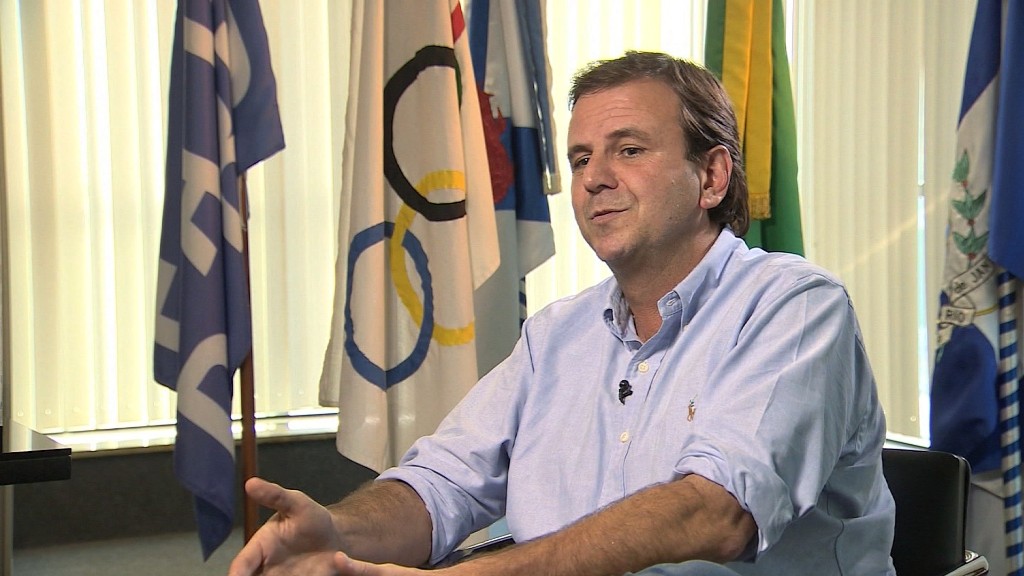
NBC expects the Rio Olympics to be its most profitable games ever -- despite Zika, a recession, political turmoil and construction delays.
NBC paid nearly $1.23 billion for the U.S. rights to broadcast the 2016 Summer Games, which officially begin on Friday with the Opening Ceremony. NBC expects to recoup that cost and then some.
NBCUniversal CEO Stephen Burke said he expects Rio to be even more profitable than the London games, which made the network $120 million.
For the Summer Games, the network says it's already pulled in nearly $1.2 billion in ad revenue. In fact, NBC says it met its ad-sales goal three weeks before Rio was set to start. That's a first for the network, which began airing the Summer Olympics in 1988. It normally doesn't hit its sales goals until just before the games start or are underway.
Related: Nike puts spotlight on India's badass female athletes
Helping to spur ad sales is the fact that Rio will be the first Summer Games to air live in prime time since the Atlanta Olympics in 1996. As a result, NBC plans to air more hours of coverage than ever before, which should help ratings and ad sales.
"The more programming NBC airs, the more ad time it can sell," said Dr. Liz Delia of the Isenberg School of Management at the University of Massachusetts.
Related: Half of Brazilians are against the Olympics
NBC hopes to draw a record number of viewers for the games and Friday's Opening Ceremony, which will air in the 8 pm time slot across the country.
The 2012 Olympics in London holds the current record for "most-watched event in U.S. television history" with 217 million viewers, according to NBC.
The network is giving this year's games a bigger social push than ever before -- the network has partnered with BuzzFeed, Snapchat and YouTube phenoms to create buzz.
Related: Meet the Olympics' unofficial sponsors
NBC may be confident that Rio will be a broadcast hit, but it's still taking some precautions.
For instance, a "handful" of employees opted not to attend the games after the network said it would let anyone concerned about Zika opt out. NBC has also been very vocal about the heightened security around the games.
There have been reports of increased crime in Rio -- a paralympian was mugged in broad daylight in June. Rio is also in the midst of political upheaval and an economic crisis and has been wracked by Zika virus. Plus, construction of a rail extension that would connect Olympic venues with the center of Rio isn't yet finished and ticket sales are weak.
But Rio is hardly the only city to be beset by big problems ahead of the games.
In London, threats of terrorism came before the city hosted the 2012 Olympics. China was racked with violence in Tibet before the 2008 Beijing Olympics. And the 2004 Olympics in Athens also struggled with construction delays and sluggish ticket sales.
